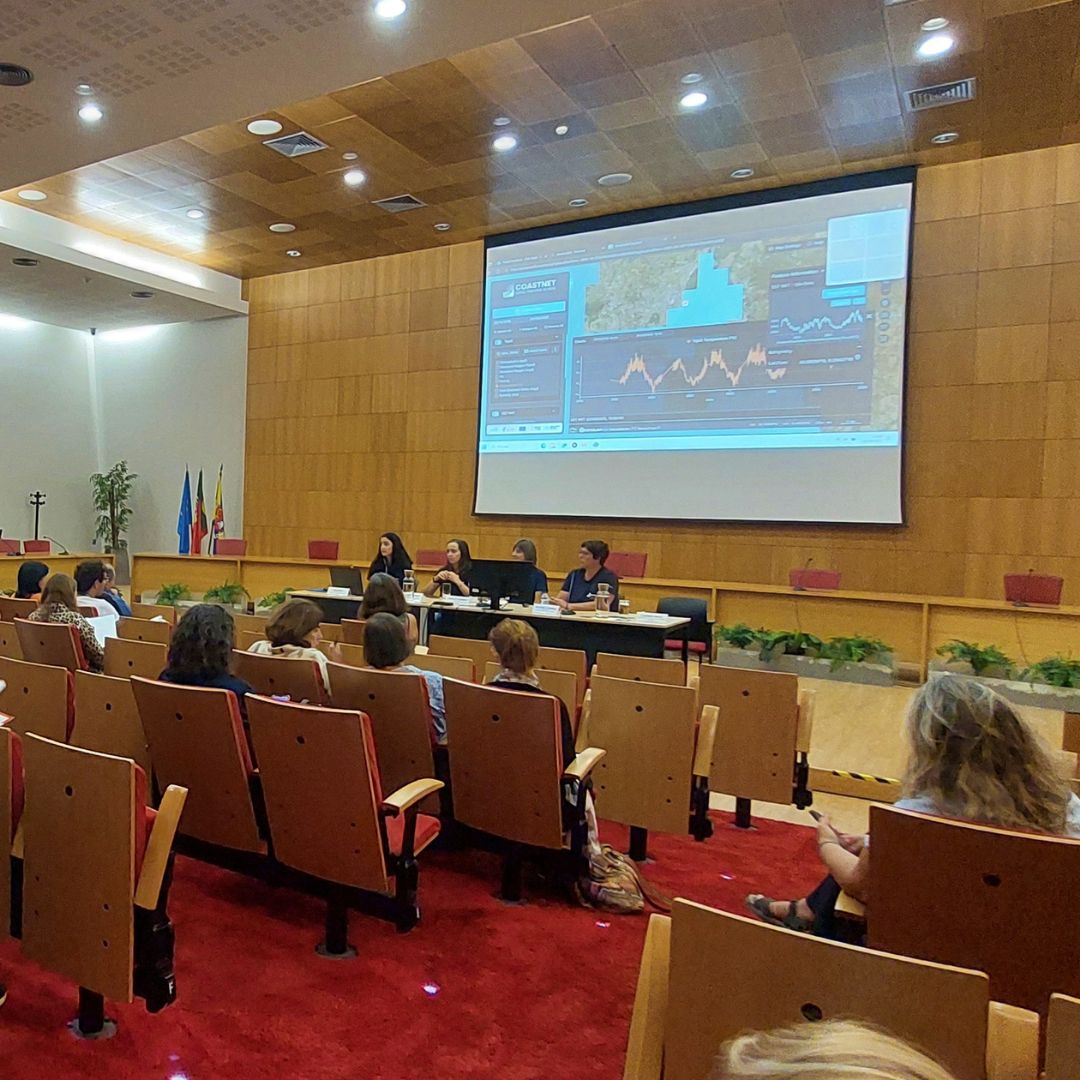Danube4All Workshop: MARE promotes knowledge and joint action for the sustainability of the Tagus estuary
On September 25, the Tagus Estuary hosted the 2nd Danube4All Workshop in Seixal, bringing together public institutions, researchers, schools, and local organizations. The initiative, organized by the Seixal City Council, MARE, ARNET at the Faculty of Sciences of the University of Lisbon, and the CoastNet research infrastructure, aimed to strengthen knowledge, mobilization, and joint action around the challenges and opportunities for the sustainability of the estuary.
The opening session highlighted the importance of bringing science closer to society and integrating different local actors into this process. As Ana Brito from MARE/ARNET/CoastNet pointed out, “the idea is to bring science closer to people, integrating the various local actors and jointly building a participatory roadmap for the sustainability of the estuary.”
The meeting also recalled the conclusions of the first workshop, held in 2024, which identified some pressures acting on the estuary, such as urbanization, climate change, and historical environmental responsibility. “When people feel involved and realize that they can be part of the solution, they contribute much more positively to the measures having effective results,” said Susana França of MARE/ARNET/CoastNet.
This was followed by the presentation of initial proposals for local implementation by Maria João Correia (MARE/ARNET/CoastNet), who pointed out three main areas: interpretive walks in Seixal Bay, “MARE by the river” events, and a school project dedicated to teacher training. “More practical, less theoretical, more hands-on activities bring students, teachers, and the community closer to the reality of the estuary,” explained the researcher.
The use of digital tools was also highlighted as essential for public engagement. As Paula Chainho (MARE/ARNET/CoastNet) explained, “digital tools such as iNaturalist and the CoastNet geoportal allow any citizen to contribute to scientific knowledge about the estuary.”
These presentation sessions were followed by a group discussion involving all participants from the various sectors, which broadened the range of ideas and proposed new forms of action. Among the initiatives suggested were interpretive cruises on the Tagus with sample collection, bioblitz, school exhibitions, art workshops, speed dating with researchers, and traveling exhibitions.
The proposals collected will be integrated into the Danube4All Replication Roadmap, reinforcing the contribution of the Seixal region to the European Mission “Restore our Ocean and Waters by 2030.” More than a diagnostic exercise, the workshop was a moment of convergence between science and the community, confirming the Tagus as a space for shared knowledge, citizen mobilization, and collective action.
Text by Susana França and Vera Sequeira
